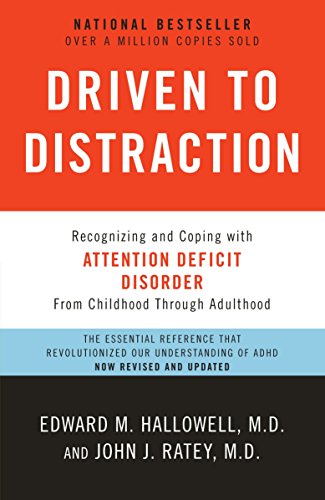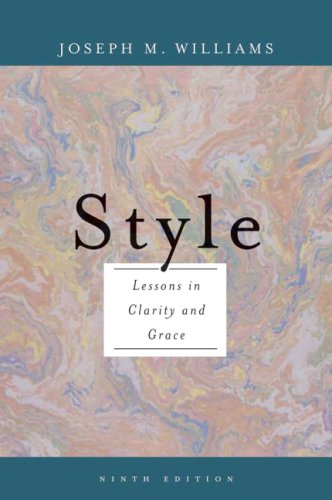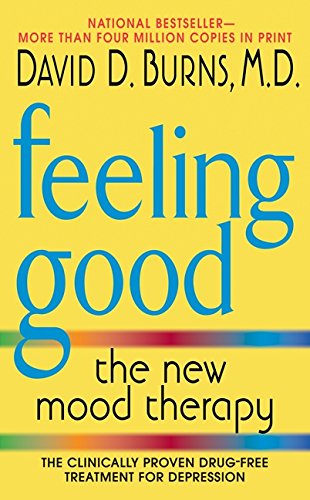(Part 3) Top products from r/GradSchool
We found 22 product mentions on r/GradSchool. We ranked the 208 resulting products by number of redditors who mentioned them. Here are the products ranked 41-60. You can also go back to the previous section.
42. Probability and Random Processes
Sentiment score: 0
Number of reviews: 1
Oxford University Press USA
 Show Reddit reviews
Show Reddit reviews43. Ignorance: How It Drives Science
Sentiment score: 1
Number of reviews: 1
Oxford University Press USA
 Show Reddit reviews
Show Reddit reviews44. Introduction to Nuclear Engineering (3rd Edition)
Sentiment score: 0
Number of reviews: 1
 Show Reddit reviews
Show Reddit reviews45. Writing with Style: Conversations on the Art of Writing (3rd Edition)
Sentiment score: 2
Number of reviews: 1
 Show Reddit reviews
Show Reddit reviews46. The Elements of Style, Fourth Edition
Sentiment score: 1
Number of reviews: 1
Wusthof
 Show Reddit reviews
Show Reddit reviews47. AT-A-GLANCE Weekly Appointment Book, July 2019-August 2020 Academic Planner, 8-1/4" x 11", Large, Black (7095705)
Sentiment score: 0
Number of reviews: 1
ACADEMIC PLANNING – Manage the upcoming school year with this classic planner. Date range covers 14 months from July 2019-August 2020 for academic year planning and beyondINK BLEED RESISTANCE – Plan your schedule without fear of distracting ink bleeding. Our improved, high-quality paper is desig...
 Show Reddit reviews
Show Reddit reviews48. The Craft of Research, Third Edition (Chicago Guides to Writing, Editing, and Publishing)
Sentiment score: 1
Number of reviews: 1
 Show Reddit reviews
Show Reddit reviews49. The Structure of Scientific Revolutions
Sentiment score: 1
Number of reviews: 1
Used Book in Good Condition
 Show Reddit reviews
Show Reddit reviews50. All of Statistics: A Concise Course in Statistical Inference (Springer Texts in Statistics)
Sentiment score: 1
Number of reviews: 1
Springer
 Show Reddit reviews
Show Reddit reviews51. Advice for a Young Investigator (A Bradford Book)
Sentiment score: 1
Number of reviews: 1
 Show Reddit reviews
Show Reddit reviews52. Artificial Intelligence: A Modern Approach (3rd Edition)
Sentiment score: 0
Number of reviews: 1
Overnight shipping available
 Show Reddit reviews
Show Reddit reviews53. Driven to Distraction (Revised): Recognizing and Coping with Attention Deficit Disorder
Sentiment score: 1
Number of reviews: 1
Driven to Distraction: Recognizing and Coping With Attention Deficit Disorder
 Show Reddit reviews
Show Reddit reviews54. 55 Successful Harvard Law School Application Essays: What Worked for Them Can Help You Get Into the Law School of Your Choice
Sentiment score: 2
Number of reviews: 1
 Show Reddit reviews
Show Reddit reviews55. Style: Lessons in Clarity and Grace (9th Edition)
Sentiment score: 1
Number of reviews: 1
 Show Reddit reviews
Show Reddit reviews56. Reading Statistics and Research (6th Edition)
Sentiment score: 1
Number of reviews: 1
 Show Reddit reviews
Show Reddit reviews57. Neuroeconomics: Decision Making and the Brain
Sentiment score: 0
Number of reviews: 1
 Show Reddit reviews
Show Reddit reviews58. So What Are You Going to Do With That?: A Guide for M.A.'s and Ph.D's Seeking Careers Outside the Academy
Sentiment score: 1
Number of reviews: 1
 Show Reddit reviews
Show Reddit reviews


They are not supposed to read like memoirs in that it shouldn't be a complete history of your life, but it's okay to use anecdotes to tell your story. In fact, I'd recommend it.
There's a great book called 55 Successful Harvard Law School Application Essays (http://www.amazon.com/Successful-Harvard-School-Application-Essays/dp/0312366116). I highly recommend that you read a good bunch of them to get a feel for what a good personal statement sounds like. When you read them, try to criticize the essay before reading the criticisms presented on the next page. In my opinion, the given criticisms are often spot-on. Test yourself to pick out what's good and bad about the essays until your intuition is good.
When you write your own, here's what I recommend
source: Editing personal statements is a big part of my job.
Entry level "PhD-level jobs" outside of academia are few and far between in Neuroscience, but consistency and planning will land you something eventually:
Start here: [Versatile PhD] (http://versatilephd.com/), [SfN Neurojobs] (http://neurojobs.sfn.org/jobs), ["So what are you gonna do with that?" Book] (http://www.amazon.com/What-Are-Going-With-That/dp/0374526214), [A PhD is not enough! Book] (http://www.amazon.com/PhD-Is-Not-Enough-Survival/dp/0465022227).
Also [www.indeed.com] is probably the best job hunting site I have found out there.
My first piece of advice:
Start job hunting and making connections now. "PhD-level jobs" are hard to find and you will have to lower your expectations a bit, especially on your first job. While long term, the degree can be a huge advantage, that is not the case immediately after grad school and you will need to be flexible.
As you explore, you will see some immediate career options are:
Adjuncting with the hope to land a faculty position at a Community College, academic scientist, medical scientist (at a hospital lab), medical devices, teaching high-school, government (NIH, NIMH etc.), science writing (grants, journals, editing etc.), learning code/stat programs (R, Python, SAS, SQL, MATLAB etc.) and taking those quant skills into 'big data', or going the more typical pharma industry route.
Consulting is another popular option, but they typically like people with some industry experience (I've seen on average 10-15 years).
The pay varies wildly on all of these, but if you are looking for the biggest bang for your buck that lines up with your (hopefully still present) passion for Neuroscience...
The pharmaceutical industry would be a great place where a Neuro PhD could thrive. From my colleagues in Neuroscience who eventually got some type of industry job, two truths rang through before they made the transition:
Unfortunately, a post-doc is almost unavoidable based on today's job market. I've seen people taking industry post-docs, which are competitive, but lead to the nice jobs and salaries you believe your degree entitles you to.
However, there are several who took academic post-docs and bought themselves time, experience, and a bloodlust for a good job, which eventually landed them something that was 70k+ in industry and they can work up from there.
Point is, there are options out there. The key is persistence, research, flexibility, and of course: networking.
I really liked Reading Statistics and Research for figuring out what stats mean in the context of other papers. I think it covered everything through my 3rd stats course.
When I'm trying to figure out which tests to use in my own research, how to do them (in SPSS), and how to interpret them, Laerd Statistics is my go-to. There's some information on there for free, but a subscription is super cheap and worth every penny. I'm not usually the type to drop money on something that I could figure out for free with Google, but having one website to go to that includes most of the basic stats, and where the explanations always make sense, are super detailed, have good sources, and are step-by-step (including things like checking for assumptions and how to write about your results) --I think it's totally worth $26 per year.
ETA: I'm also in social science.
I recommend "Data Analysis: A Bayesian Tutorial". It's pretty short and easy to read and has examples and pseudocode for many of the discussed methods. Use whatever programming language you're most comfortable with (MATLAB does have nice built in functions for dealing with large matrices). Depending on the amount of data, I'd avoid excel and just load ASCII data files from your code if possible.
Writing with Style is great. It's not about thesis writing specifically, but is focused on how professional authors think about their audience when they write. It's enjoyable and useful.
Just tagging on as a fellow ADHD-head: one of the best techniques that I've found for studying (avec medication, natch) has been to build in breaks. It sounds obvious and simple, but the way our brains are wired, we have seriously diminishing returns over long stretches. So, every 30-45-60 minutes (whatever works for you), get up and go do something that uses a different part of your brain. If you're reading and doing critical analysis, go for a walk, get a cup of coffee, watch 20 minutes of tv or something. When you come back, you'll be fresher and sharper to continue the work.
Also, the book Driven to Distraction has some excellent ADHD study techniques like this... particularly helpful because the self-driven nature of grad school means we really need to be our own supervisors.
Kaplan has some good materials you should check out, including books, courses and online resources (with the online practice tests the most helpful)
However, if you want to specifically work on your vocab, check out verbal advantage if you want to compliment your vocab studying with an outside source.
Verbal Advantage at Amazon
Off the top of my head, I would recommend The Structure of Scientific Revolutions by Thomas Kuhn and The Demon-Haunted World by Carl Sagan.
The former is an excellent summary/treatise of how science works and what brings scientific revolutions about. The latter is an excellent intro to critical thinking. It's quite anti-religious, though, so that may turn you off.
I've felt this many times (first year here too) and something that has been a nice source of reassurance has been Ramon y Cajal's book for new graduate students - http://www.amazon.com/Advice-Young-Investigator-Bradford-Books/dp/0262681501 . It was great reading through it in my first quarter and I keep thinking back to his words every time I feel really down - because he says something really simple - if you're here, then you can be here, and all you can do now is keep observing and doing, stuff will eventually happen.
I recommend this book. It came recommended by a professor and I have found it very useful for my own writing.
Style: Lessons in Clarity and Grace
This book is awesome. It helps very much in gaining perspective when all looks like shit.
*Yes, you are right. What do I need to do to improve it?
Here are several links to books that might be helpful:
Link 1
Link 2
Link 3
I have a statistics professor as one of my co-advisors, and she highly recommends this book. I have it on hand at all times.
If you haven't heard of the book Ignorance: How It Drives Science, by Stuart Firestein, I recommend checking it out. It's a fairly short read that explores the idea that it's not really knowledge we are/should be looking for, but more questions (I mostly agree with this).
Eats, Shoots & Leaves The no nonsense guide to punctuation.
The Craft of Research
Craft of Scientific Presentations
Edward Tufte I've never read anything of his, but I see this recommendation from time to time.
Hitchiker's Guide to the Galaxy Because sometimes you need a vacation. :)
Russell and Norvig's Artificial Intelligence: A Modern Approach is a standard for undergrads and early grads.
Nuclear engineering: Introduction to Nuclear Engineering by Lamarsh
Goes from "what is an atom?" to advanced neutron shielding calculations and more. Don't know of another field with such a wide-ranging book.
I think the most accessible book is by Paul Glimcher. Note that this is an intro text book, not pop science.
http://www.amazon.com/Neuroeconomics-Second-Edition-Decision-Making/dp/0124160085
CLRS for algorithms/CS.
Probability and random processes for statistics.
Biological Sequence Analysis by Richard Durbin for my subfield of bioinformatics.
I started buying the large At-A-Glance calendars before graduate school, when I worked at a non-profit, and now I can't live without them: https://www.amazon.com/gp/product/B07LBPNFTV/ref=ppx_yo_dt_b_search_asin_title?ie=UTF8&psc=1
If your schedule only has a few long things per day, this is probably not necessary, but if you are bouncing between things a bunch, having everything divided into 15 minute intervals is SO helpful. I have yet to find another planner with so much space and detail.
It's not as cute as some other options, but it is functional AS FUCK.